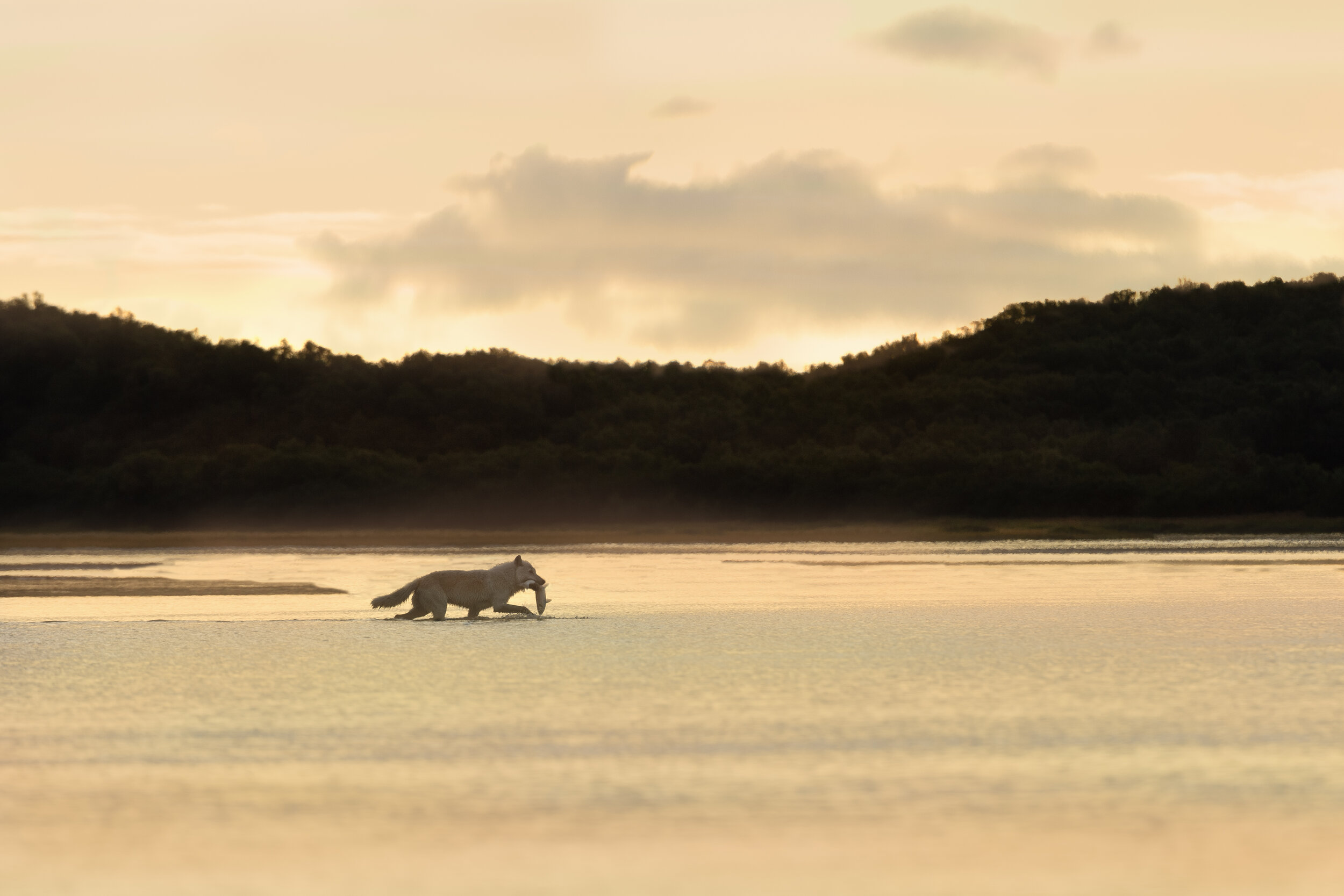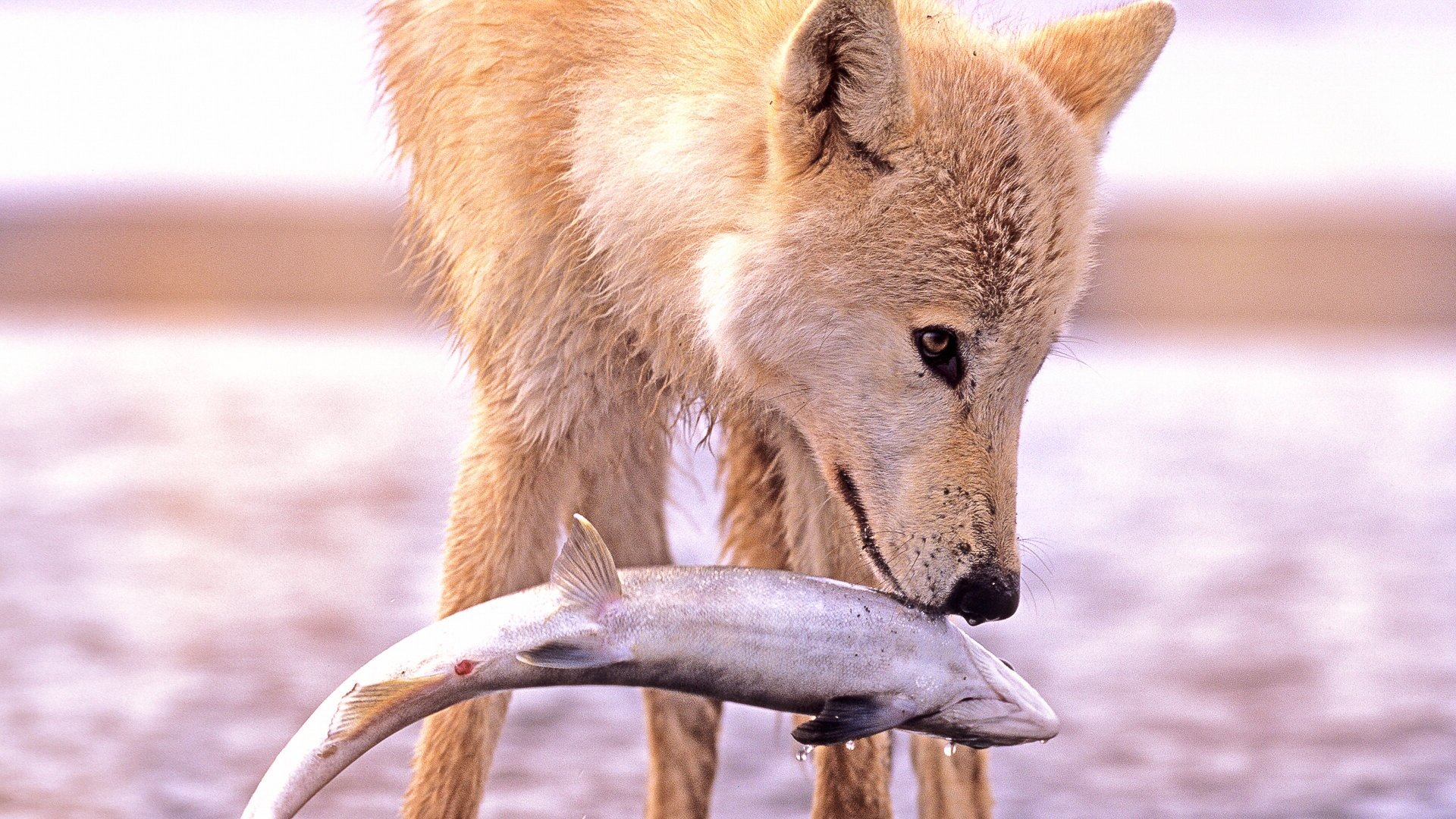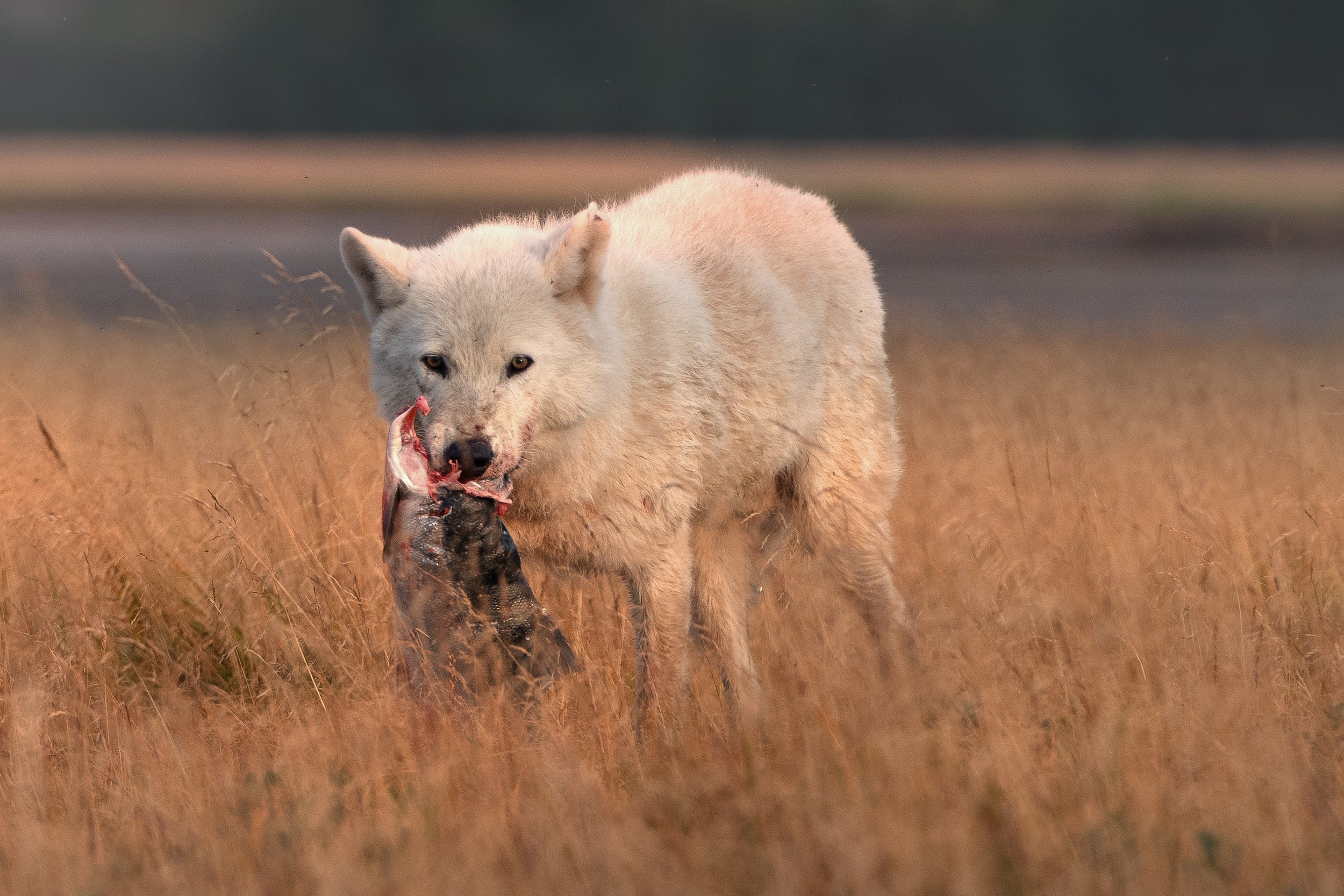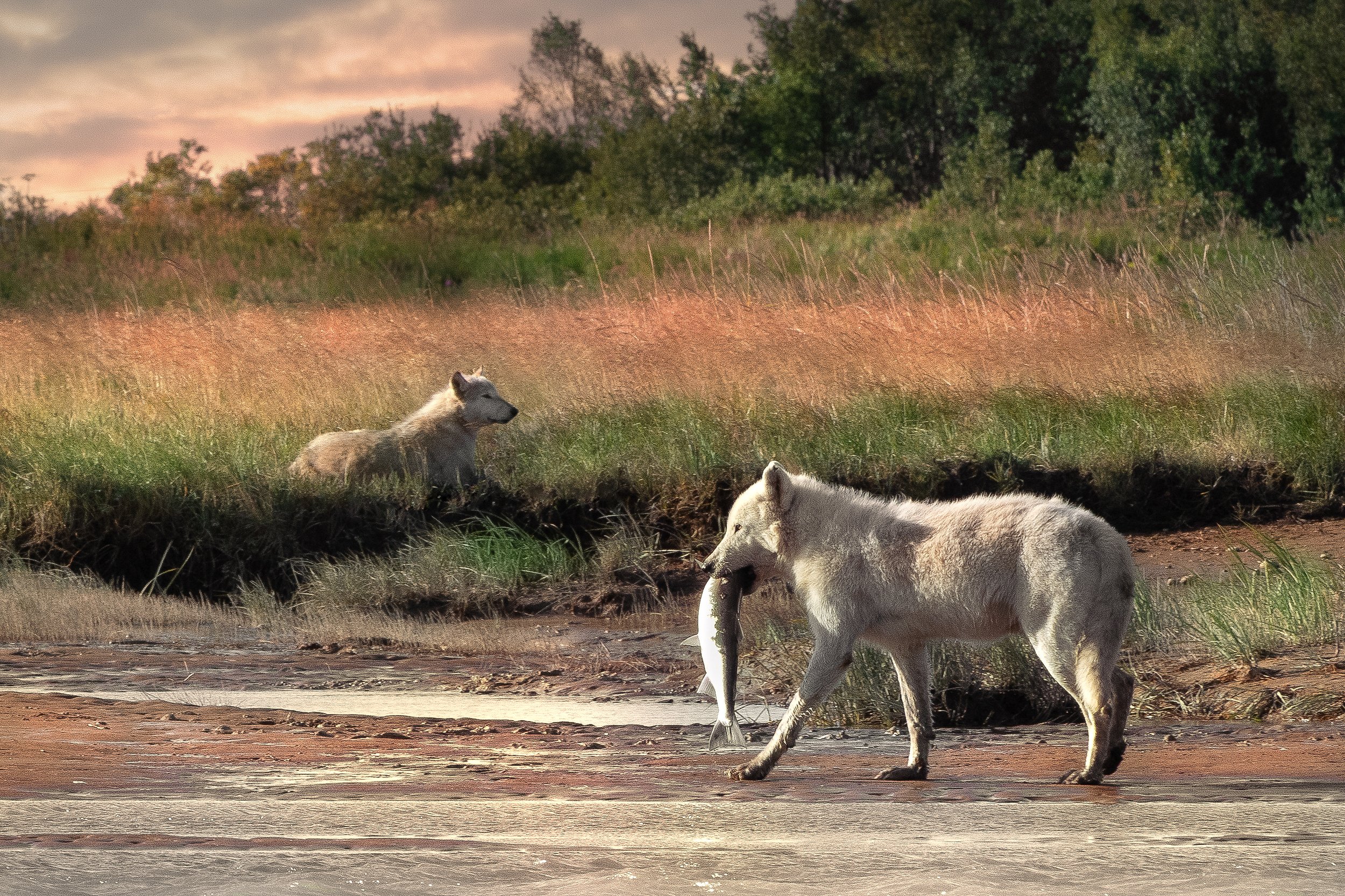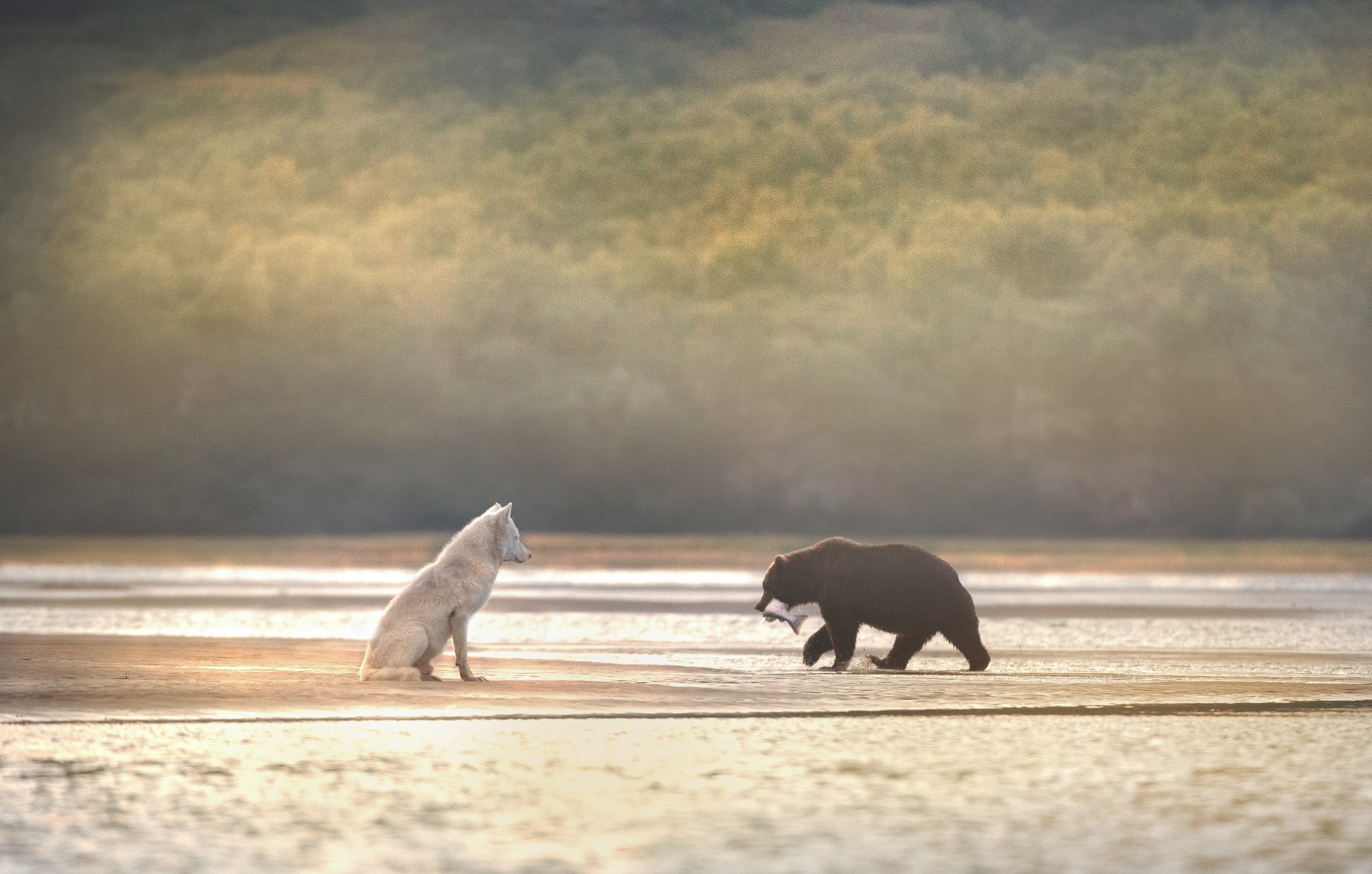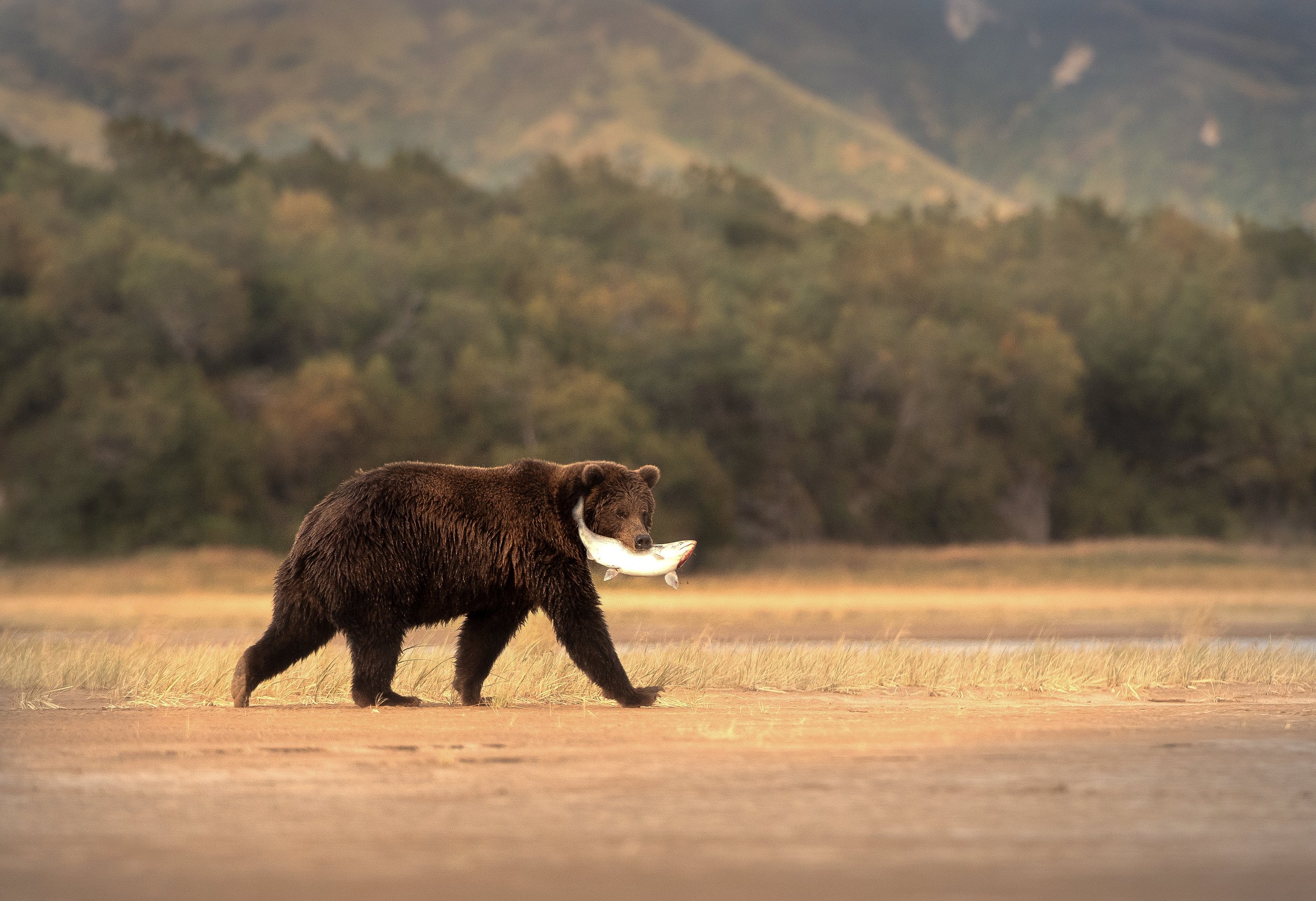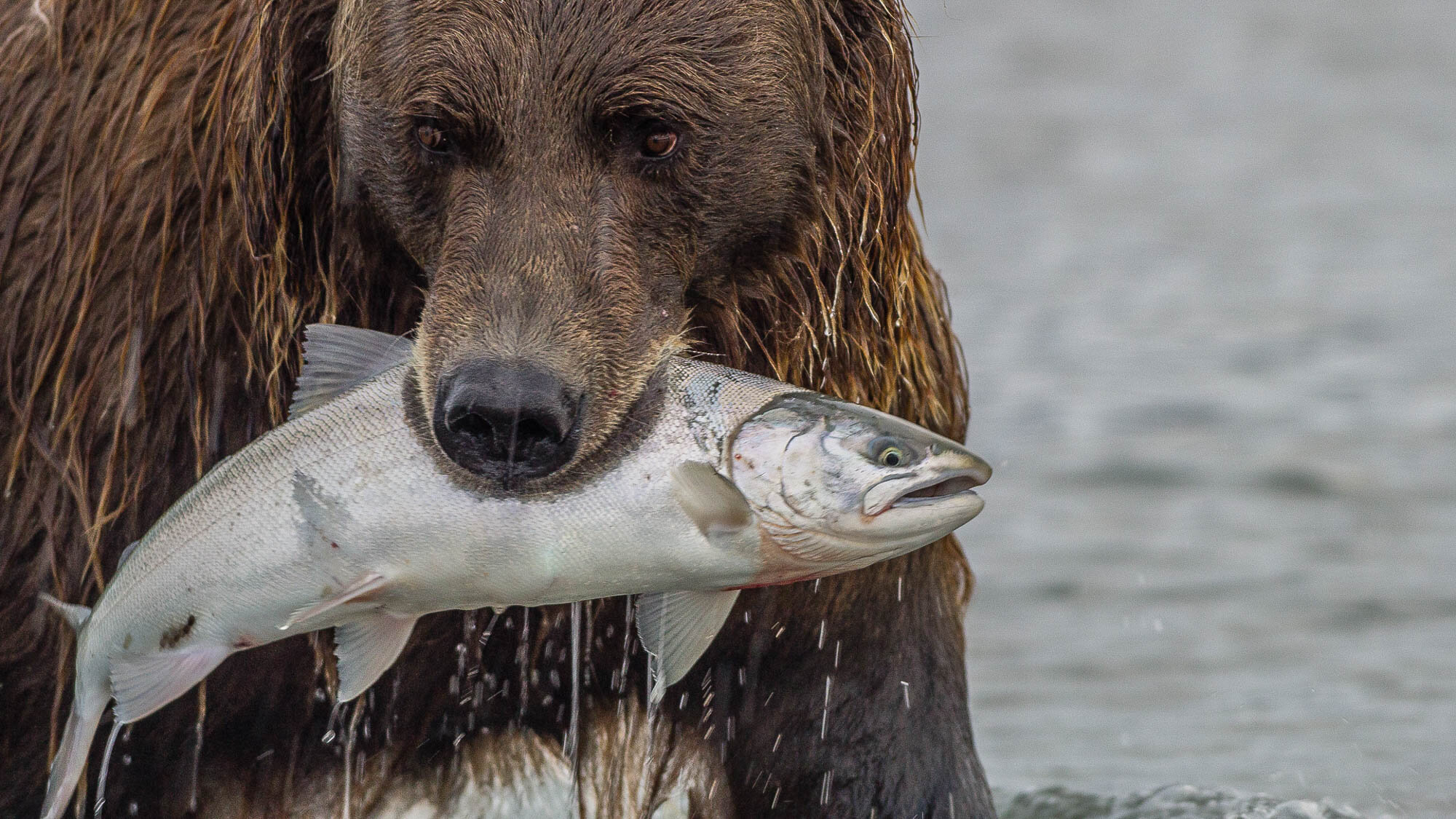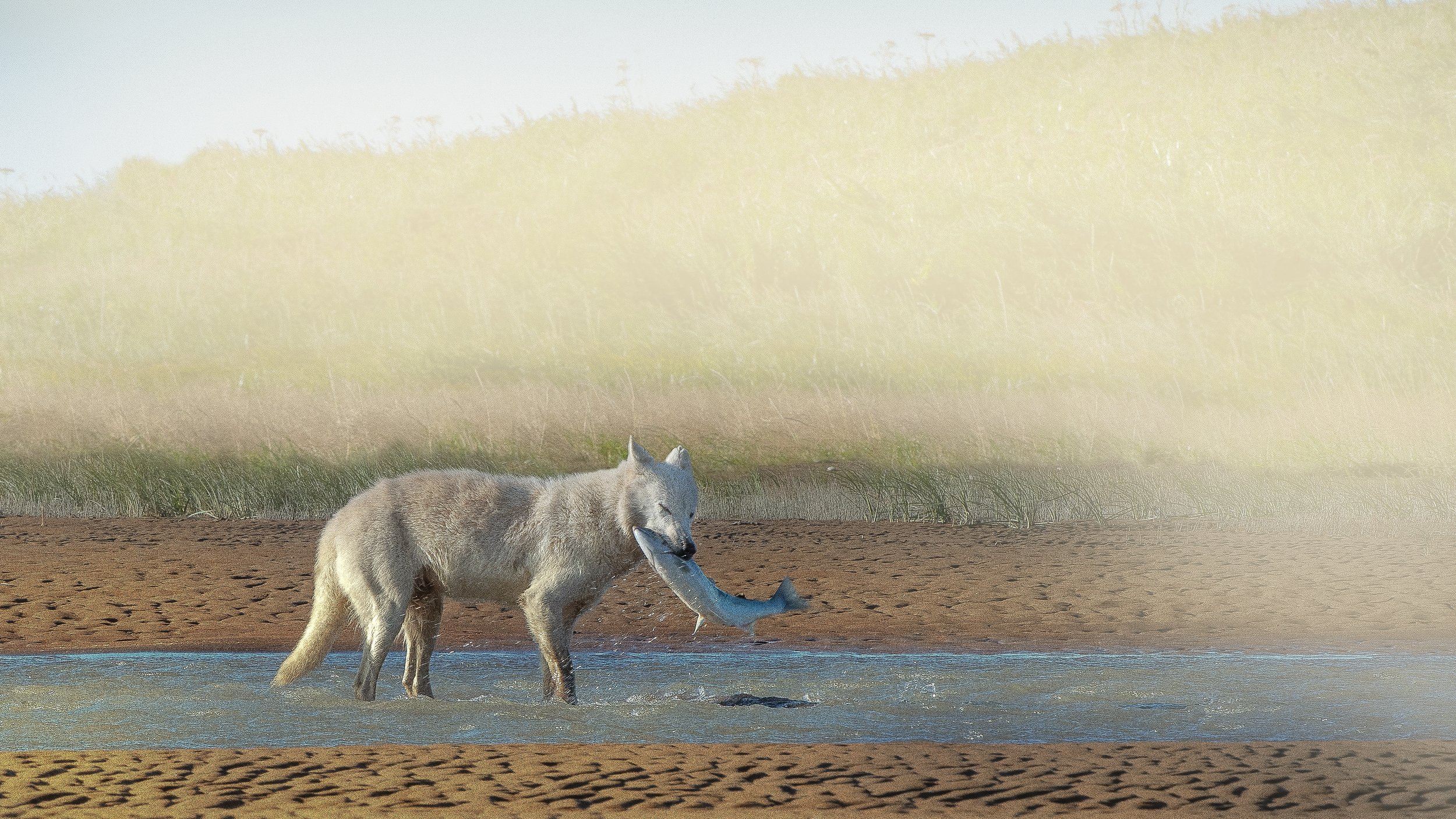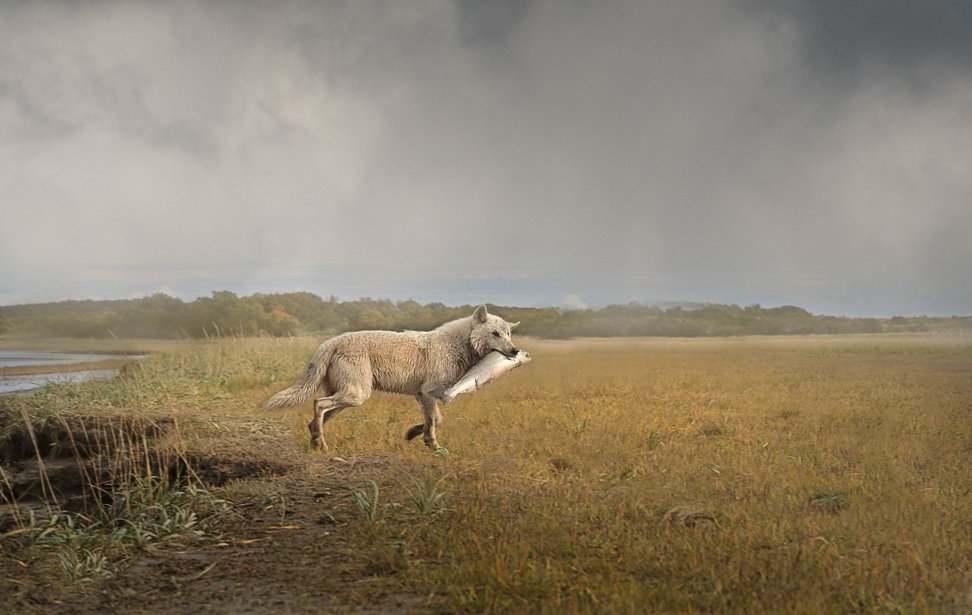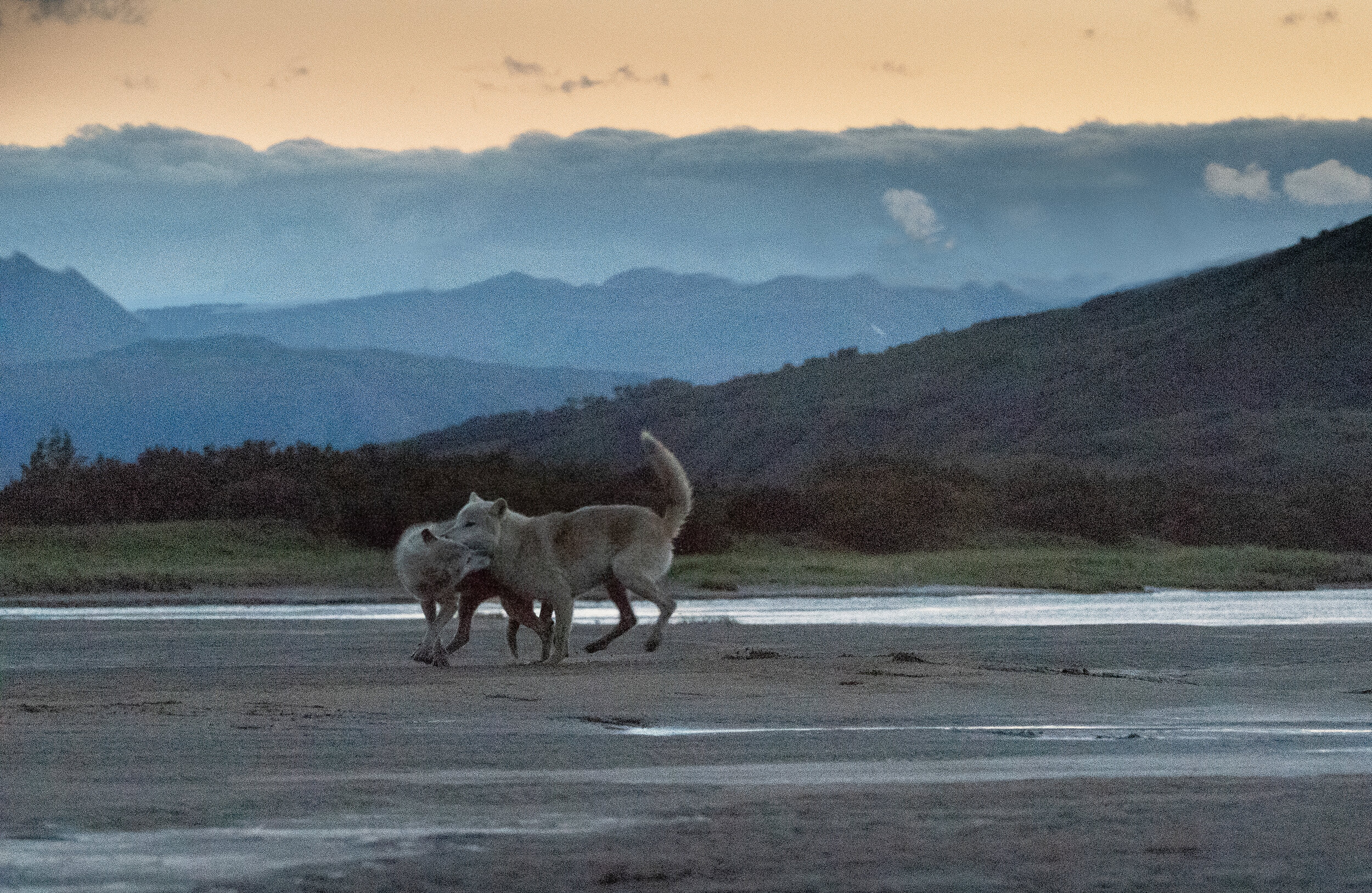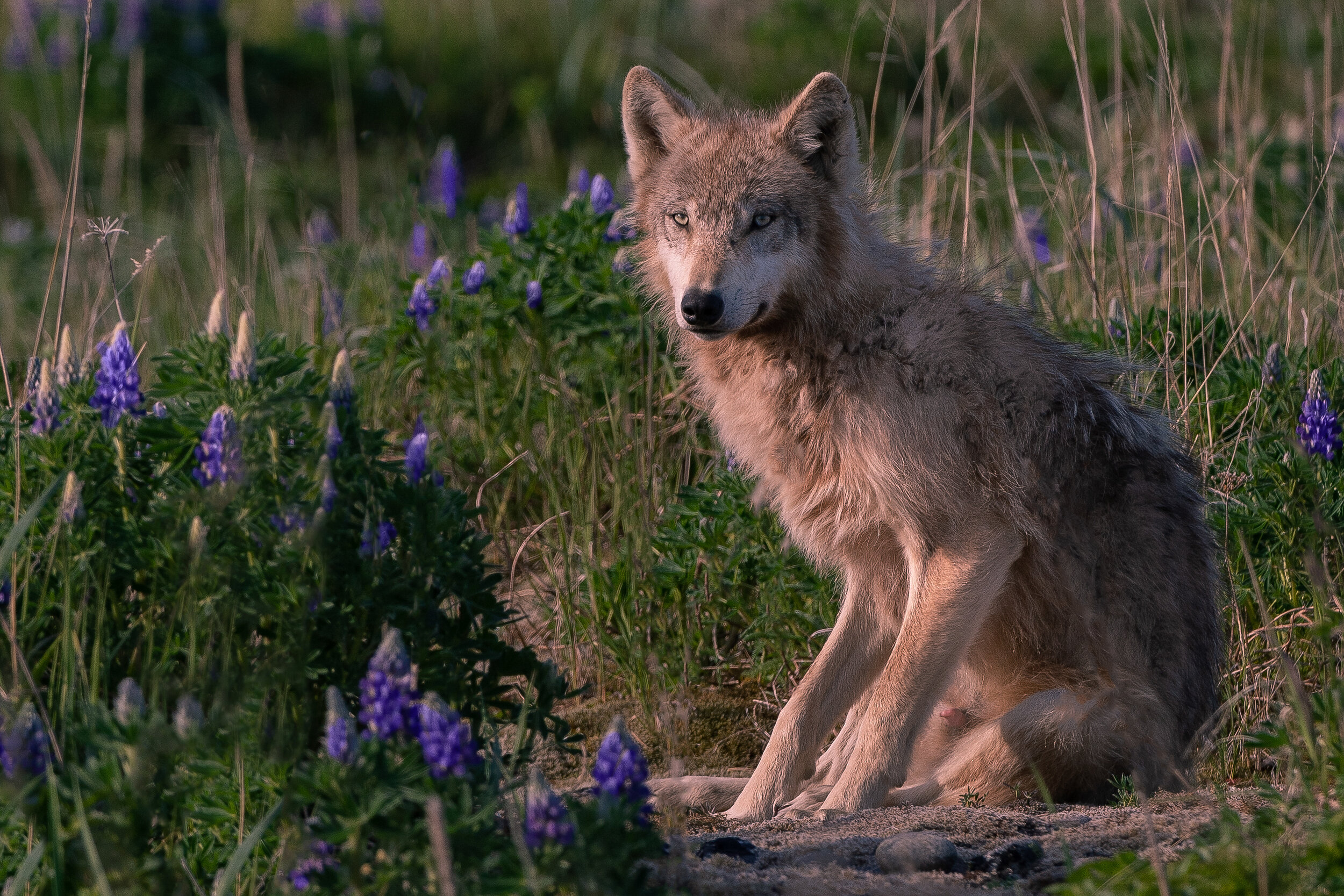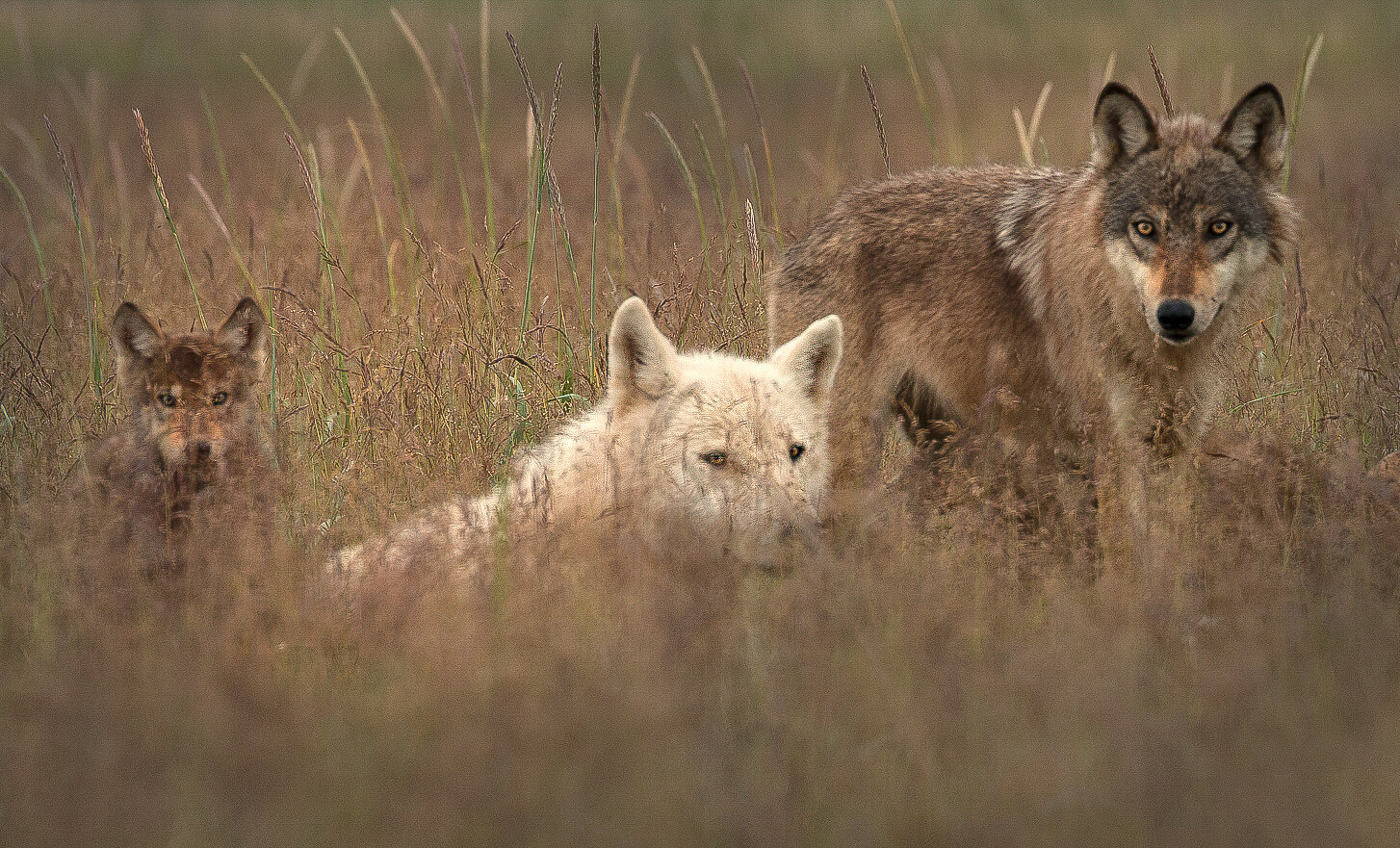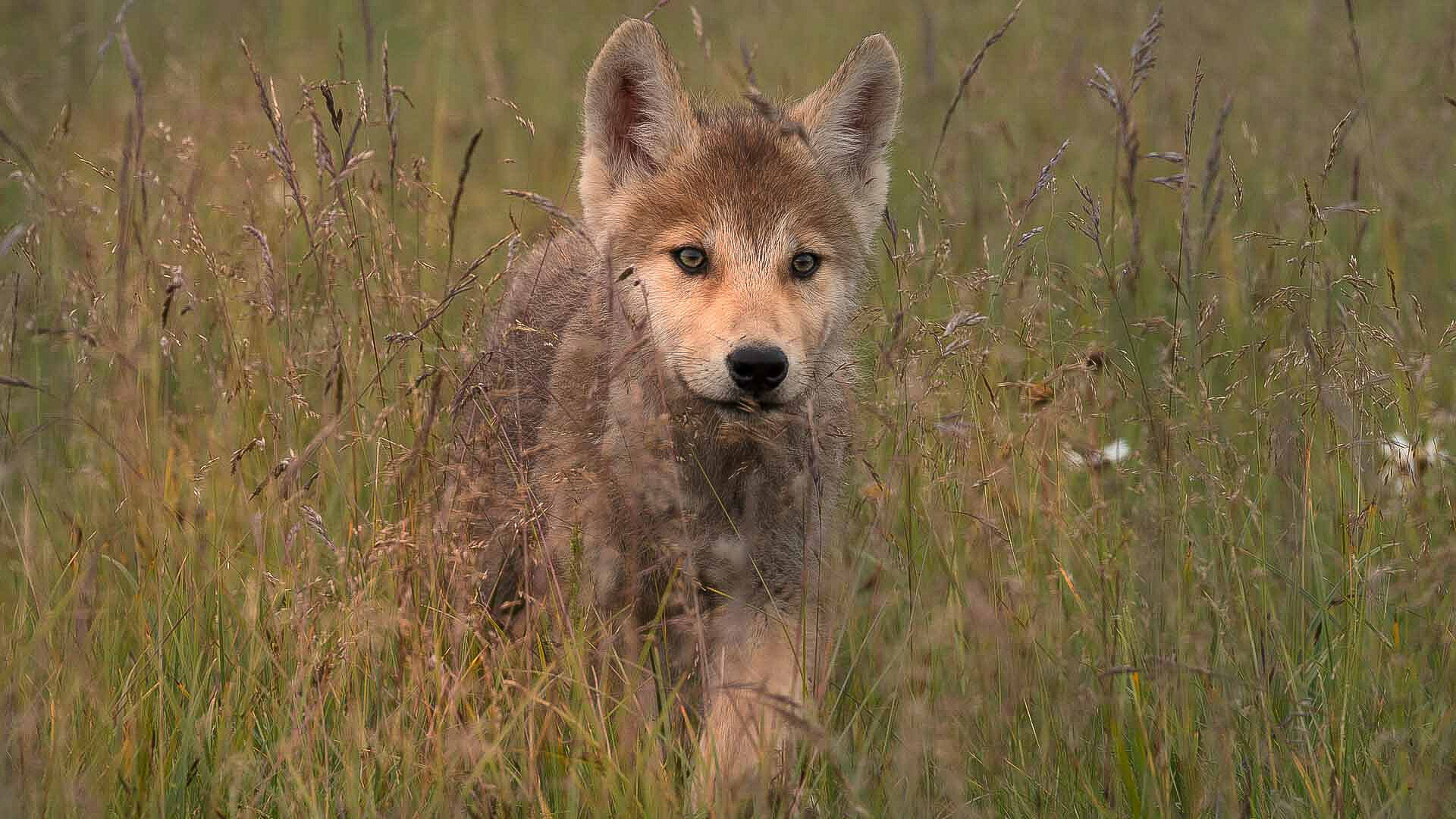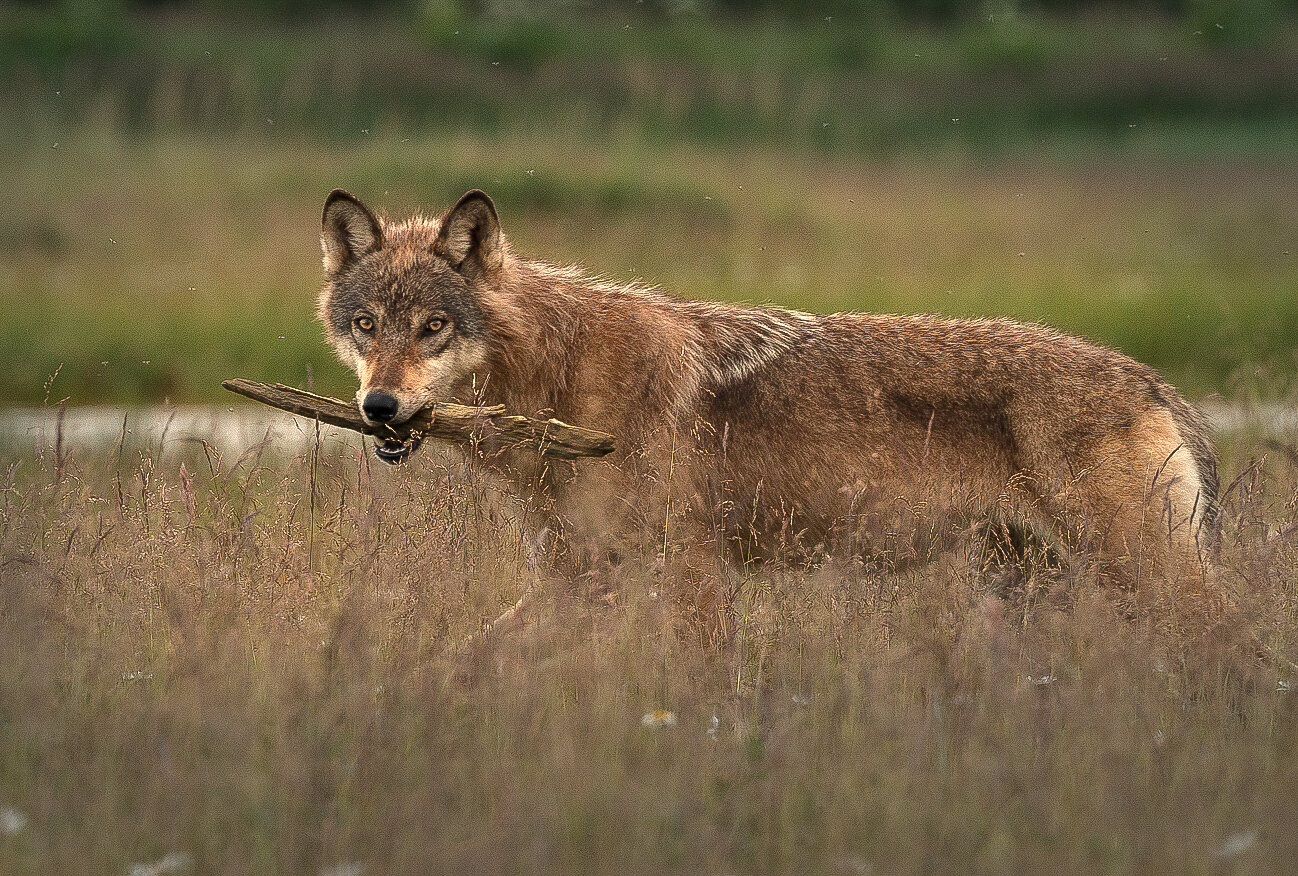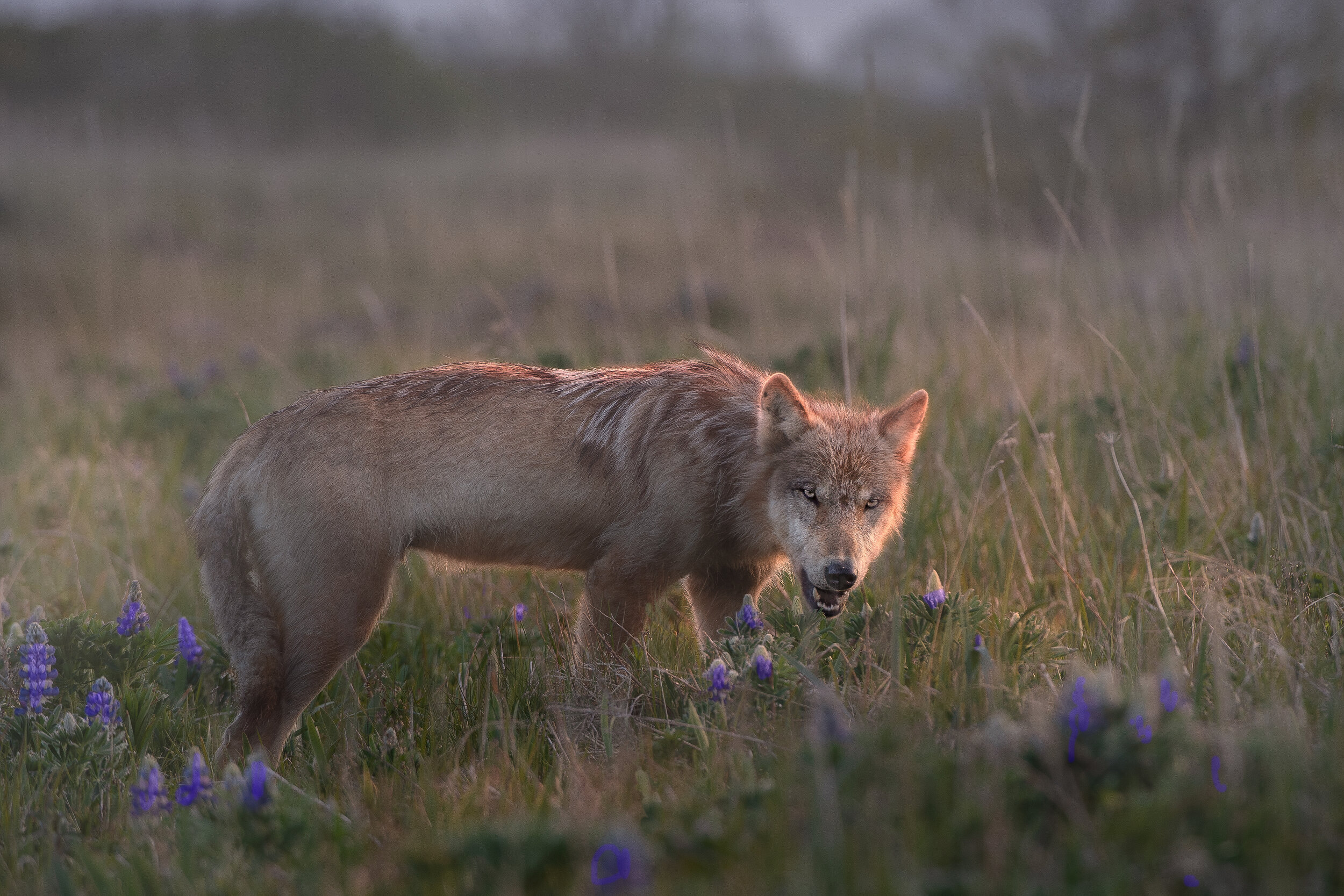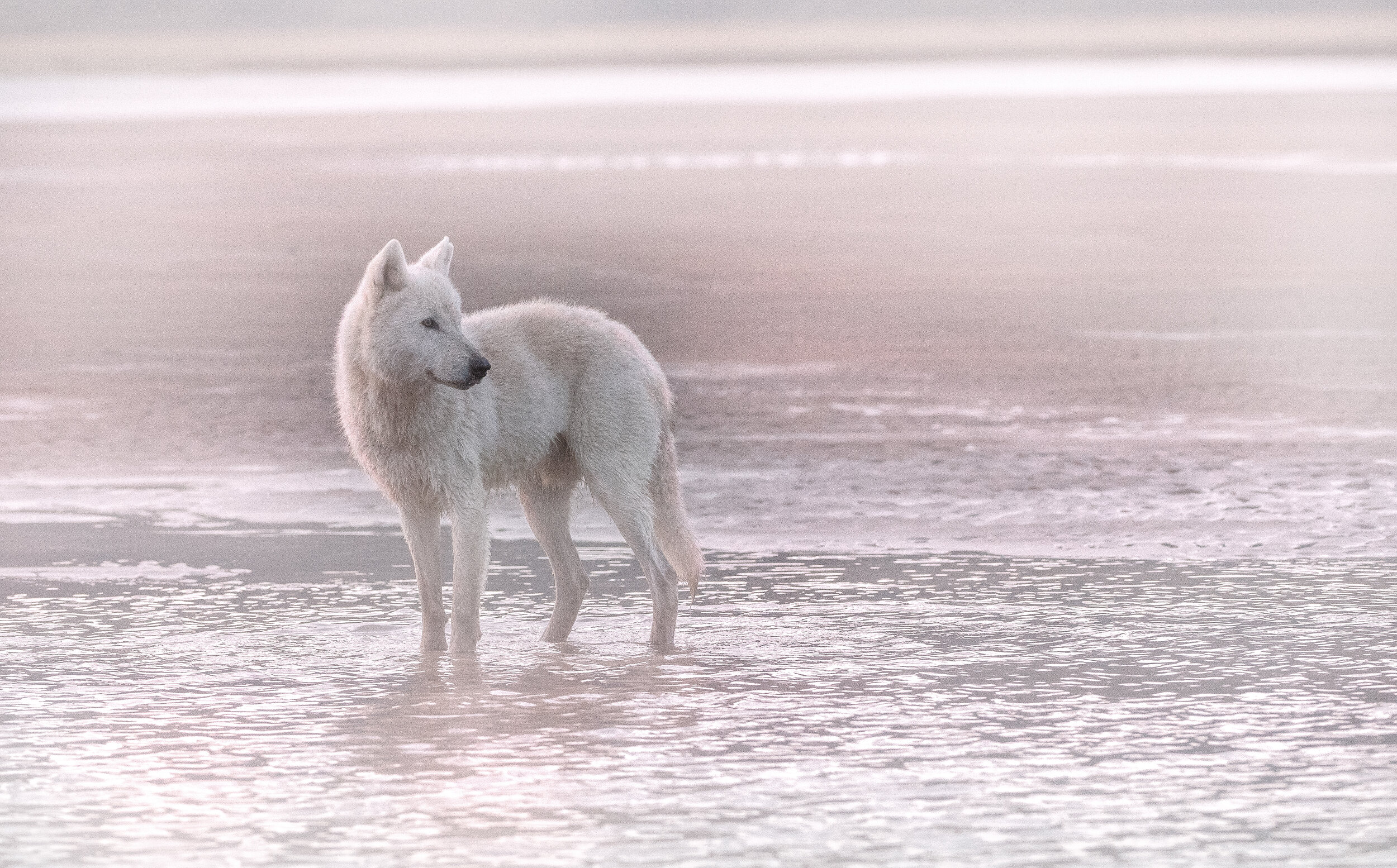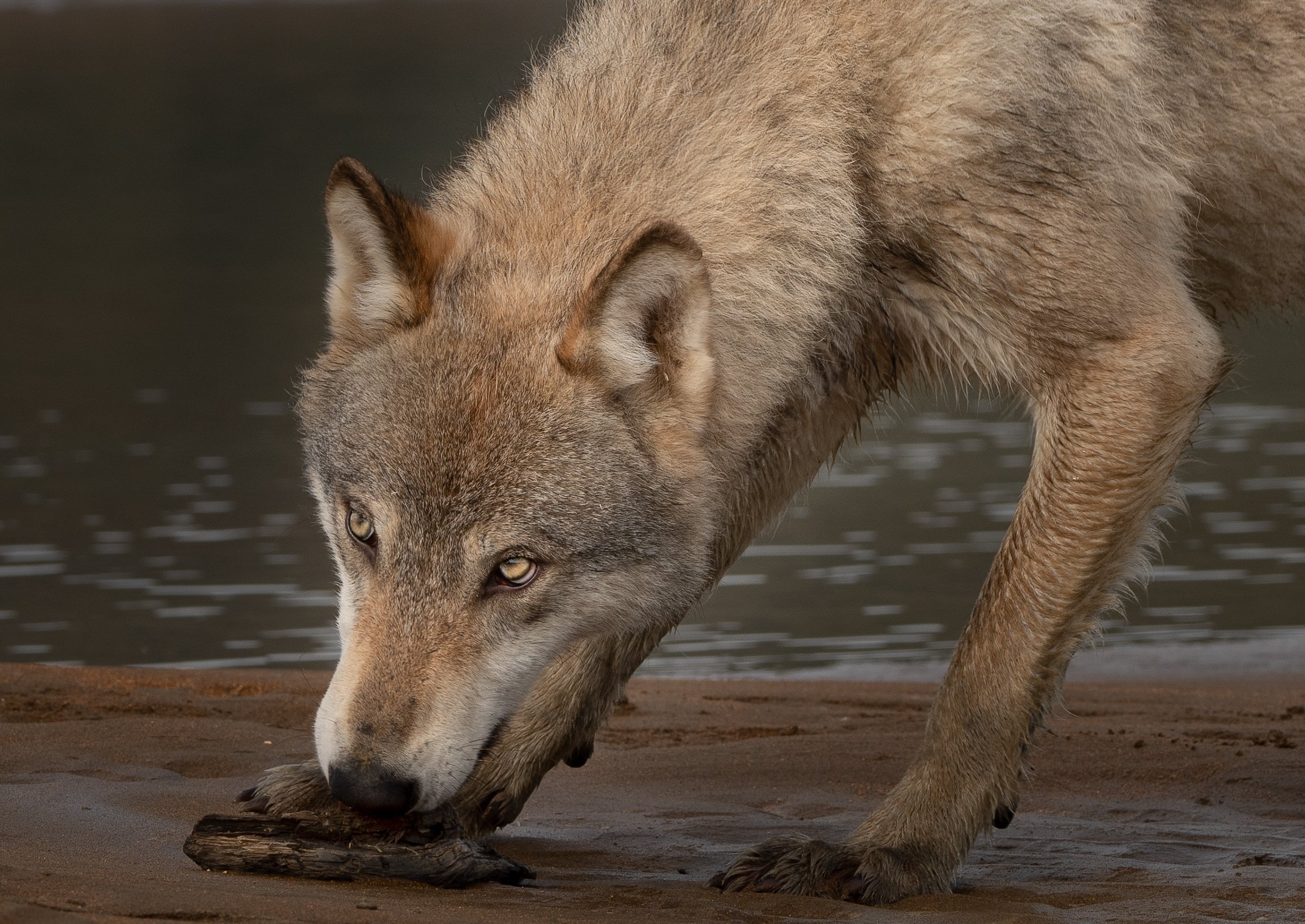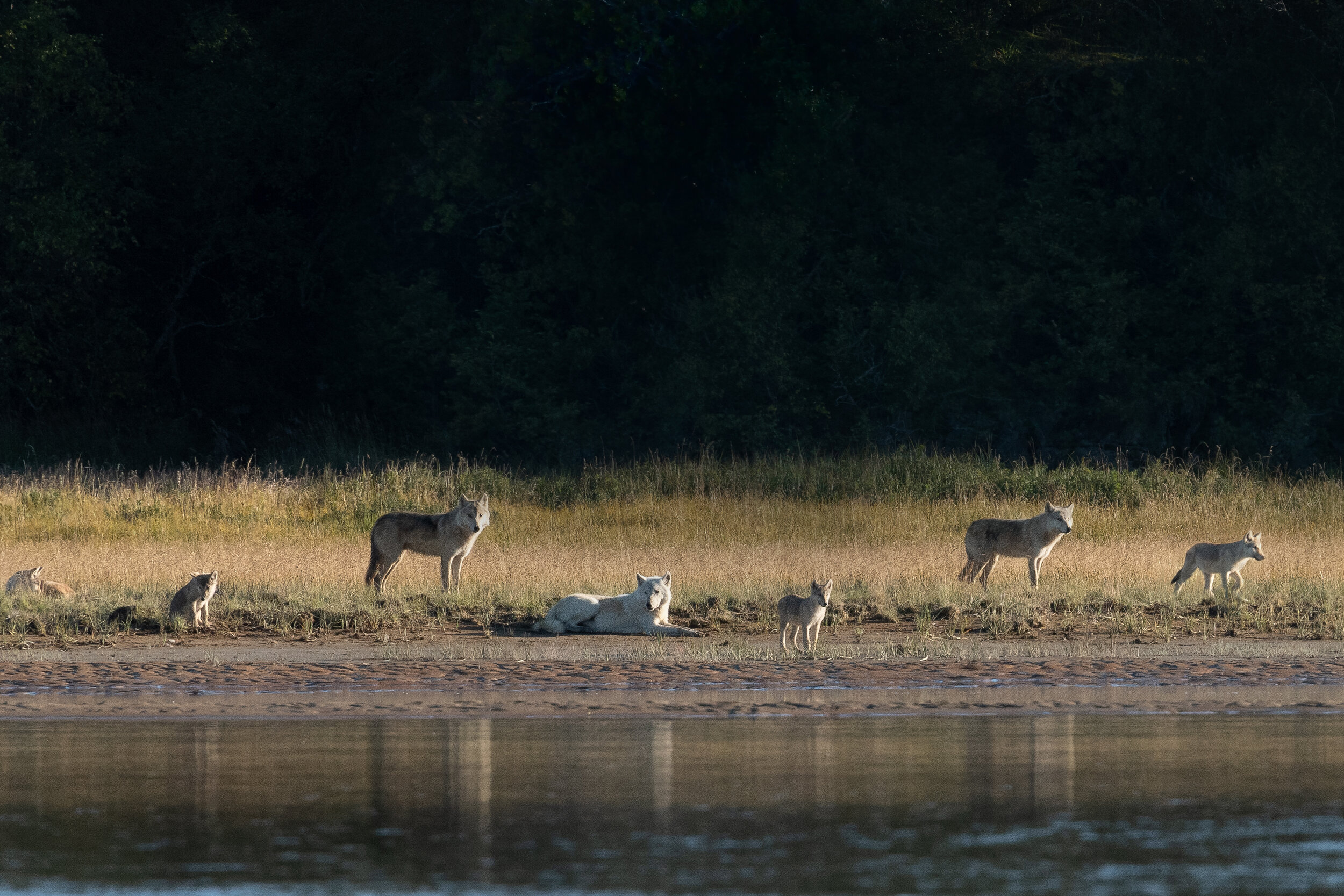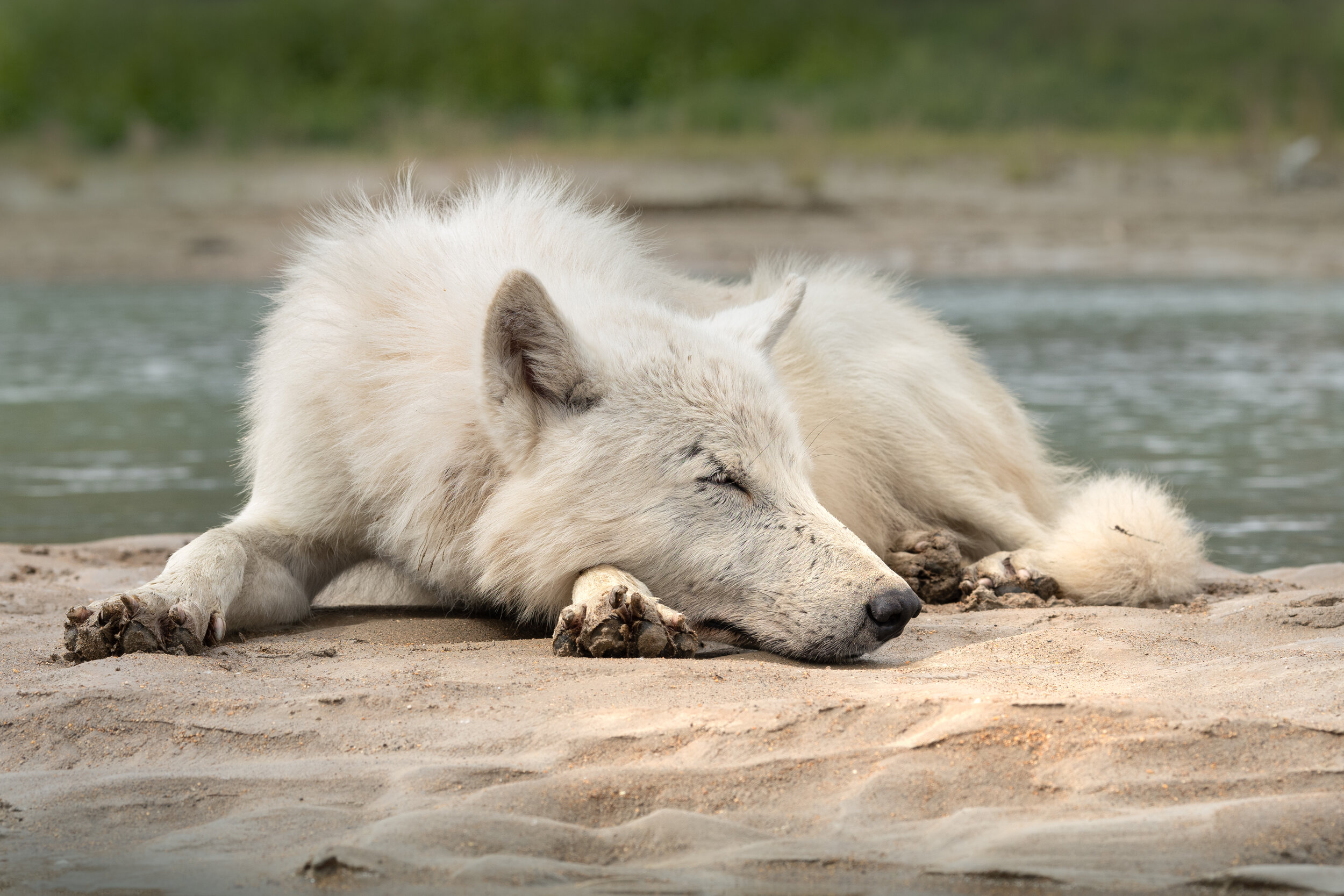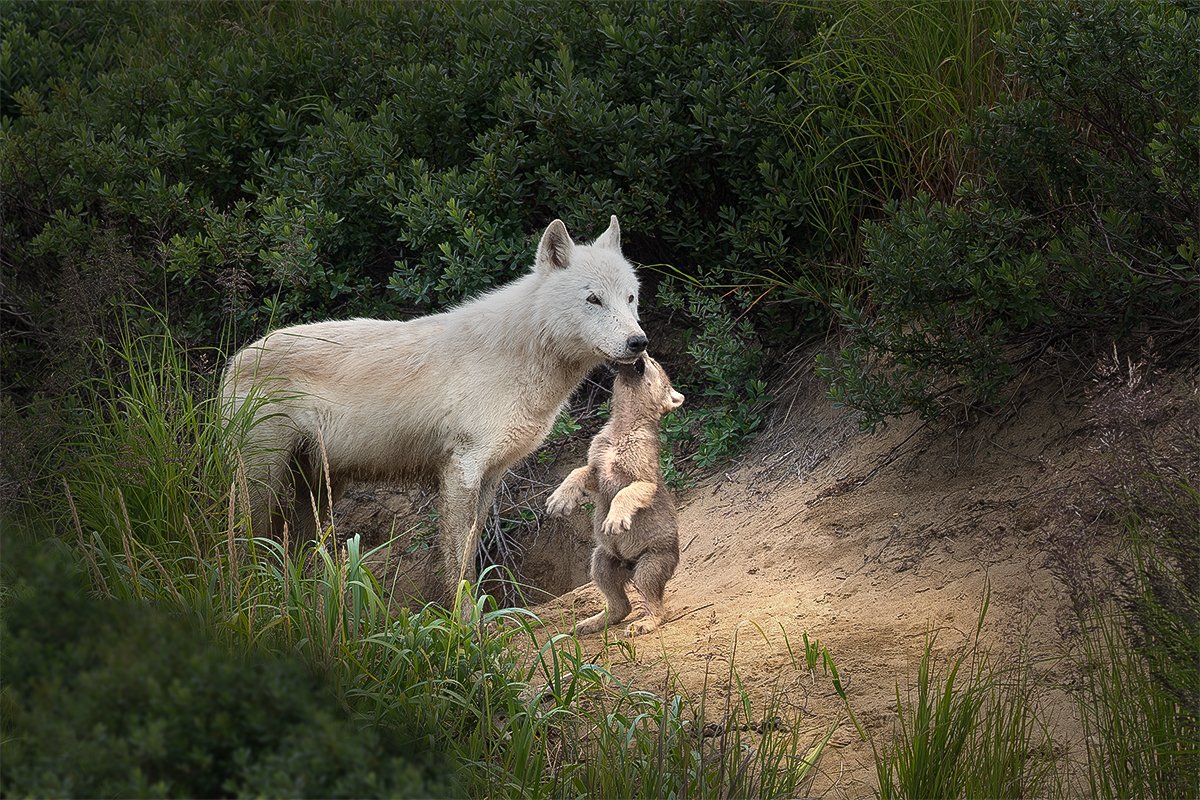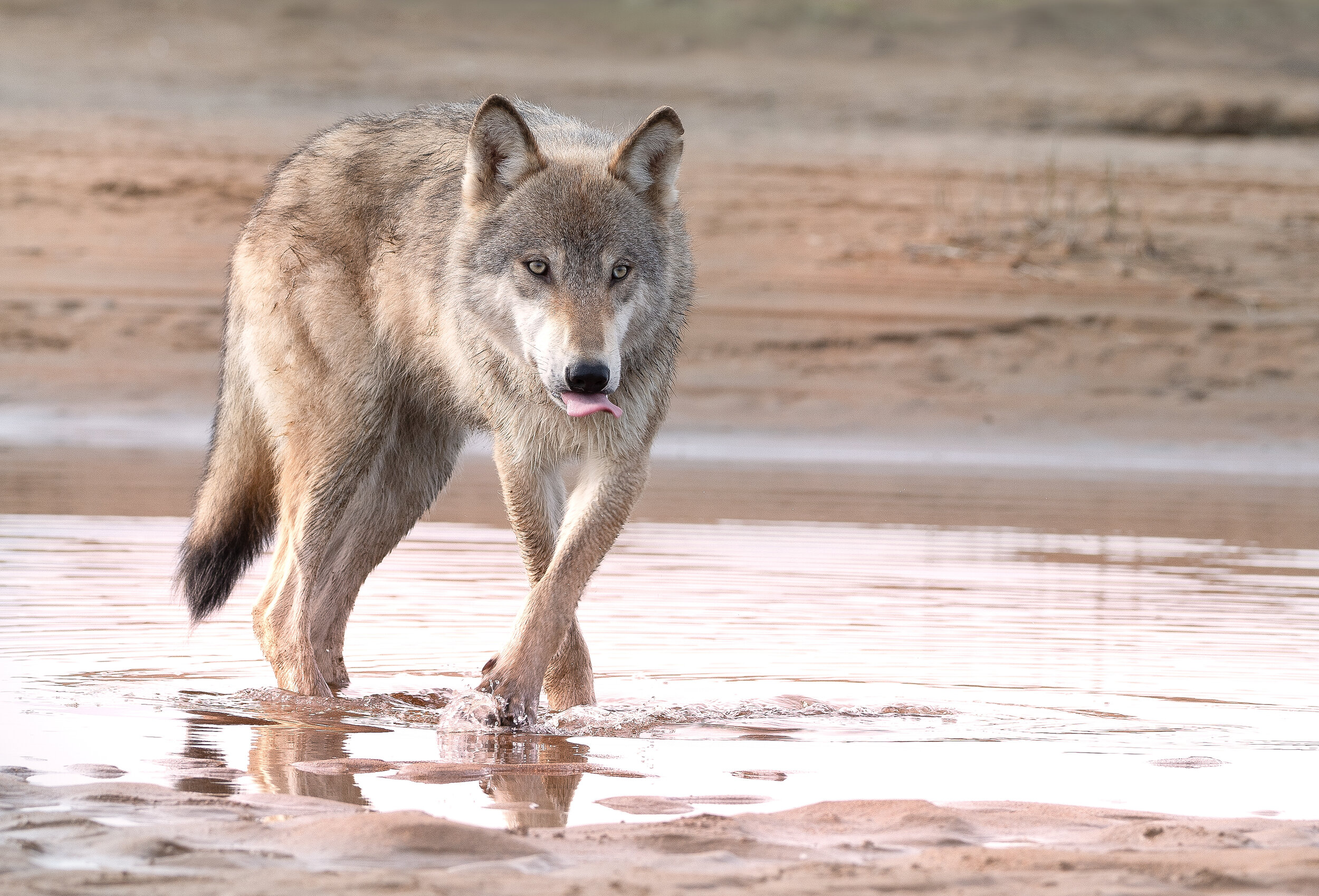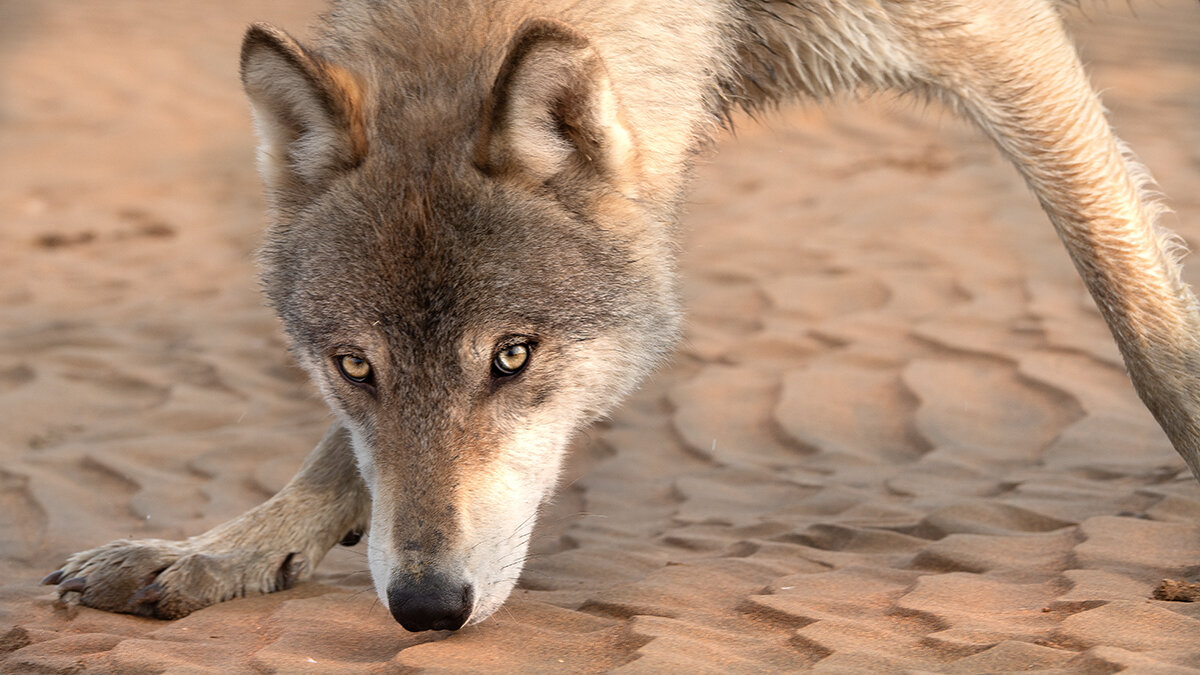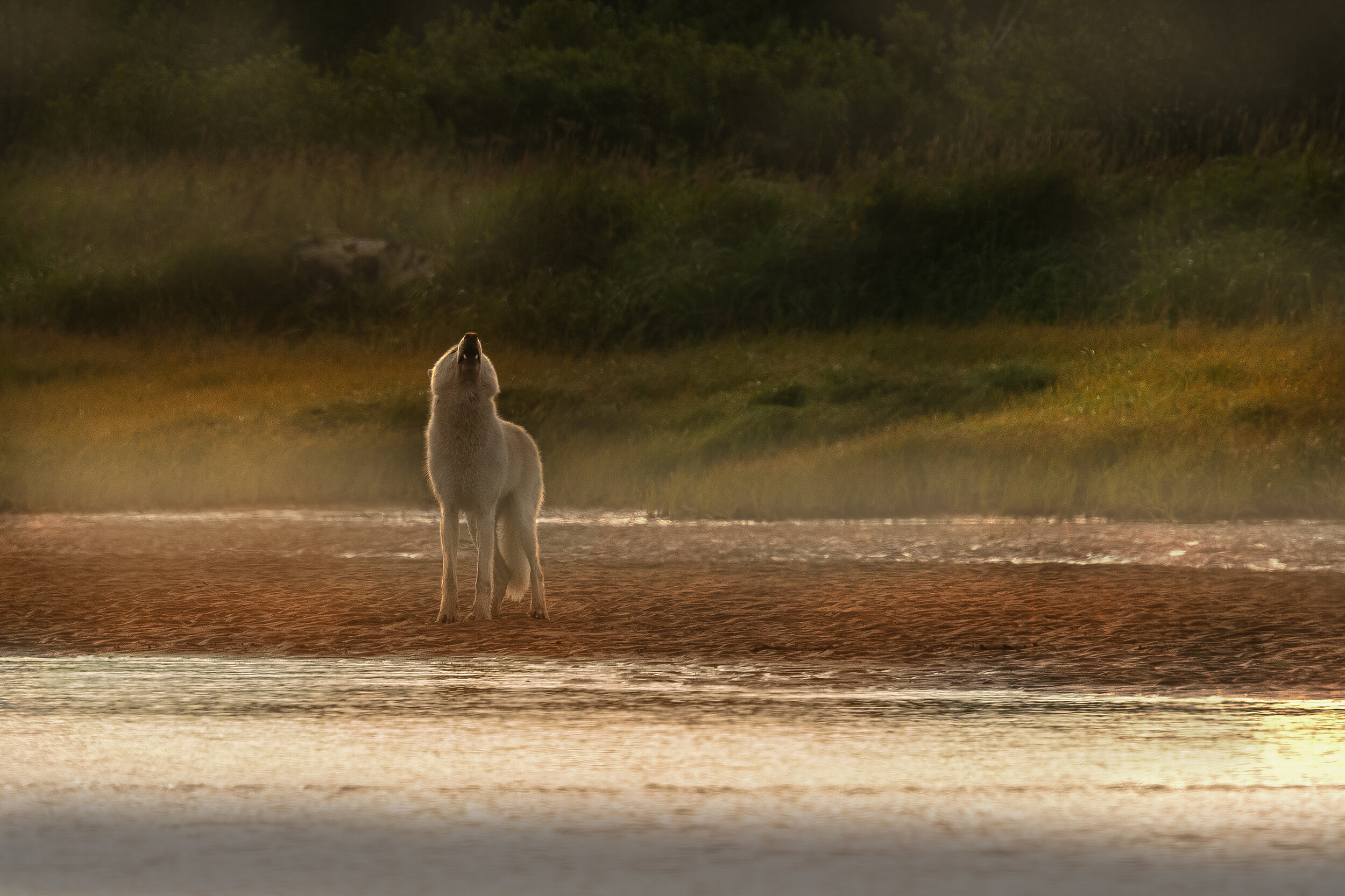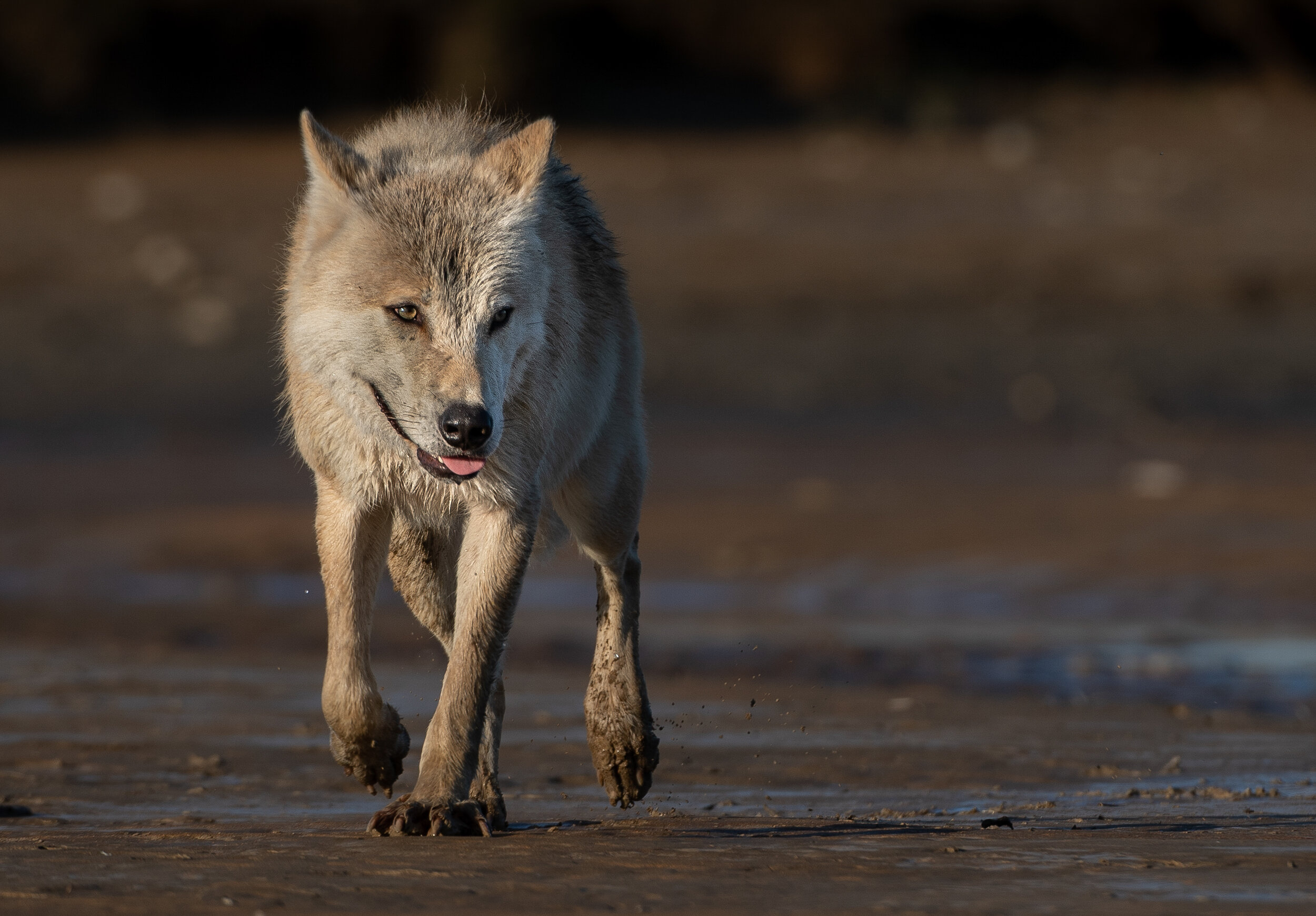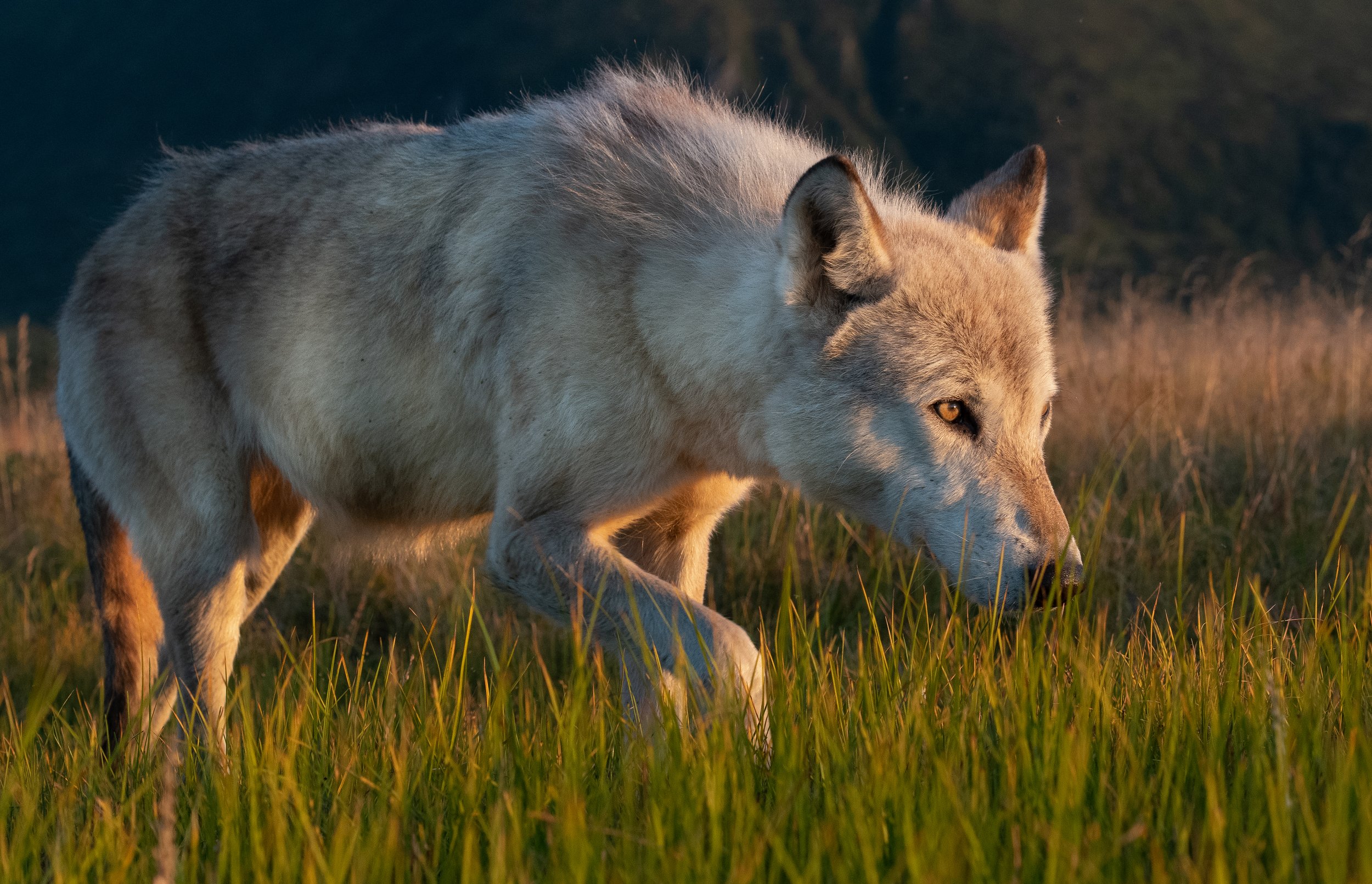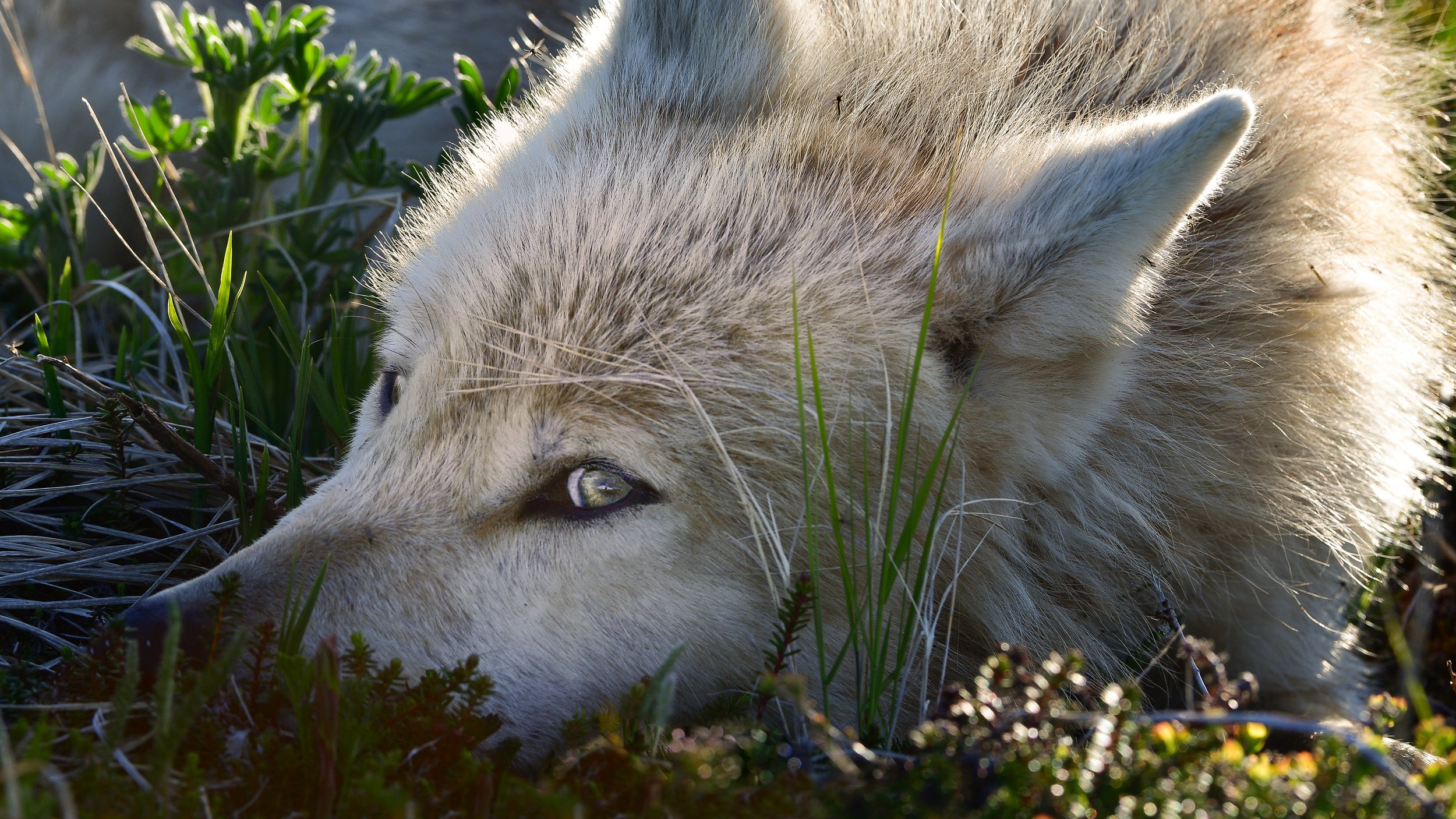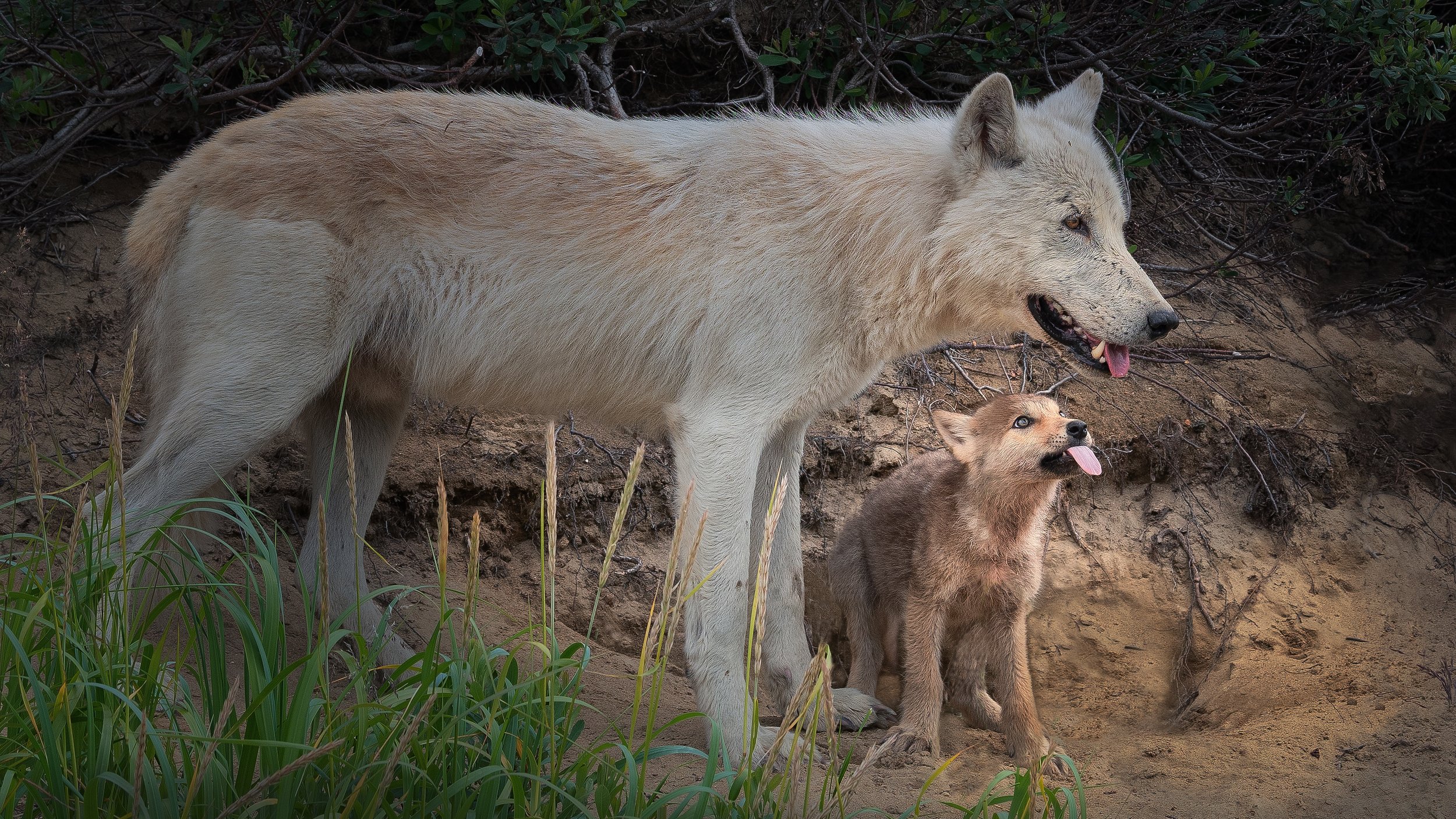ALPHA MALE’S BONDING WITH ESTHER REVEALS CLUES
ABOUT DOG BEHAVIOR AND WOLF DOMESTICATION
FIRST DOCUMENTARY TO FEATURE ALASKA COASTAL “SEA” WOLVES
Alaska Peninsula wolves are a coastal population of grey wolf, Canis lupus ranging from Unimak island to the shores of Cook Inlet. Mitochondrial DNA (mtDNA) shows most of their diet is marine life from the Gulf of Alaska. Unlike coastal “sea wolves" of British Columbia, the Alaska Peninsula wolves' diet is less than 3% moose, their only terrestrial large mammal prey other than uncommon bear kills. Their lighter coloration is an adaptation to open habitat which might lead to undaunted encounters. While Alaska Peninsula wolves tend to be less fearful of humans (probably due to a rare incidence of human contact), some individuals like Mosquito’s mate are extremely wary, while Mosquito is what wolf experts Pat Shipman and other wolf domestication experts consider “doggie”.
This gregarious or hyper-social behavior of most dogs and some wolves like Mosquito is thought to be a genetic trait that might have contributed to the domestication of Ice Age wolves to the first wolf dogs.

